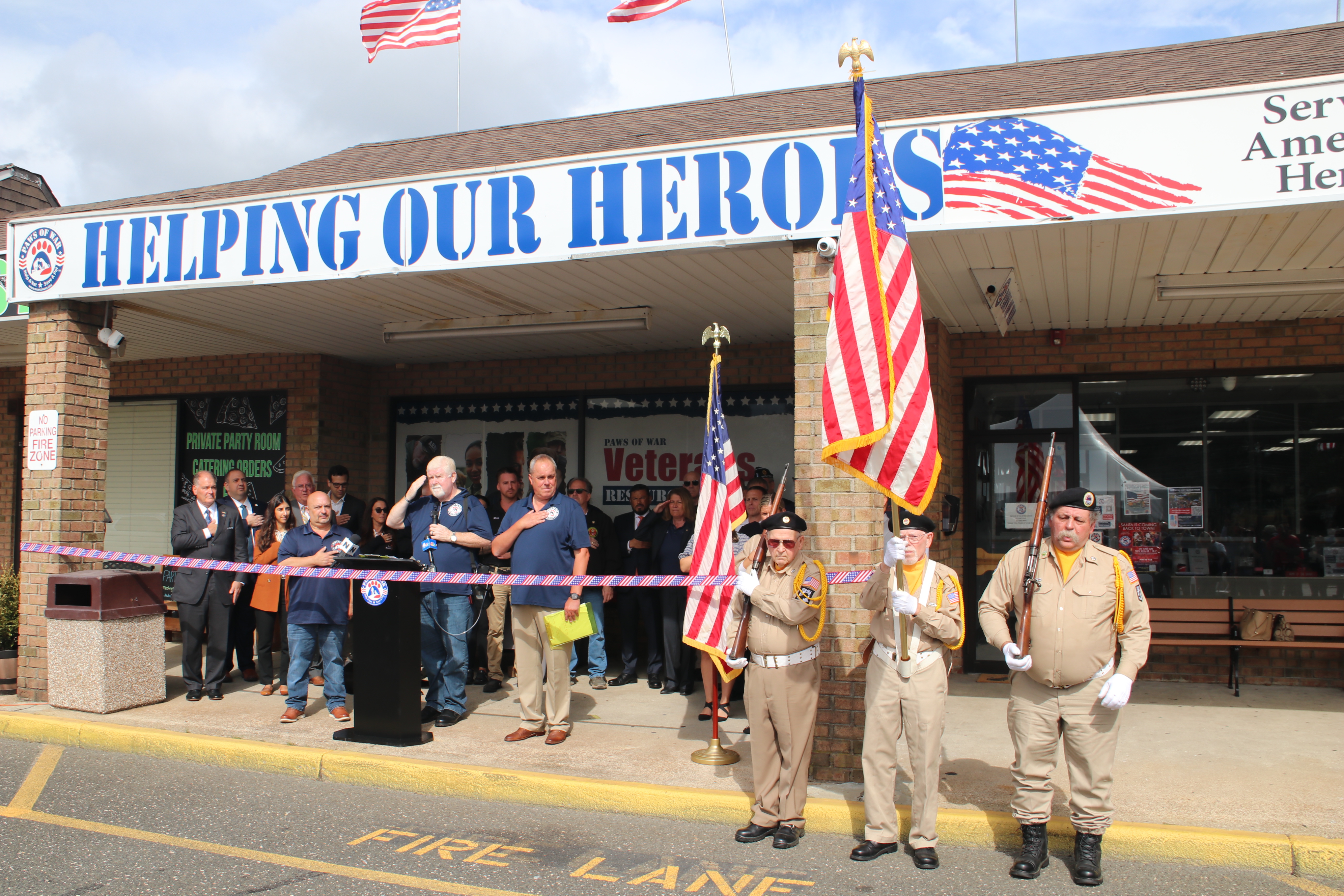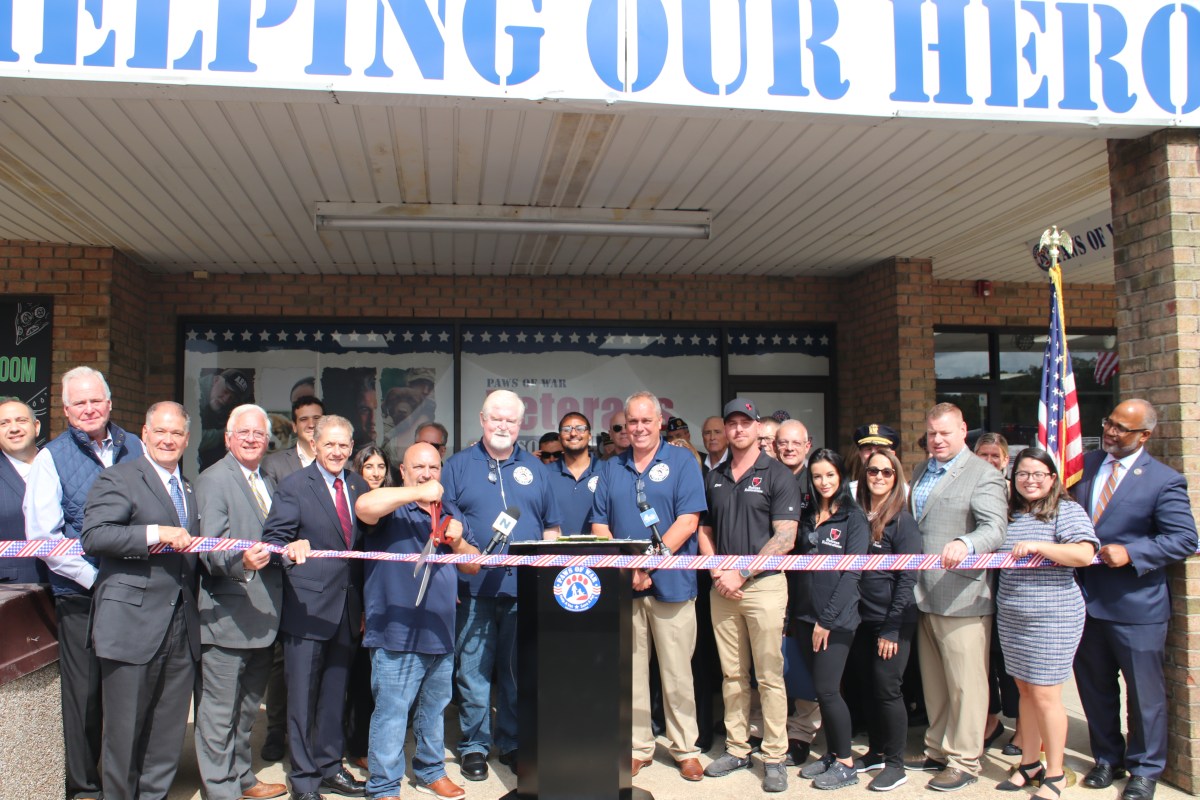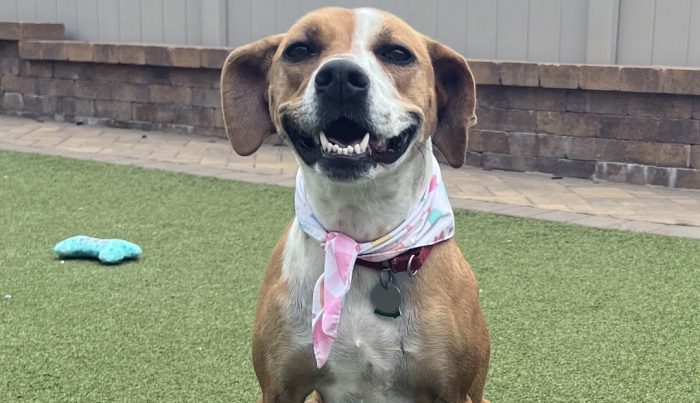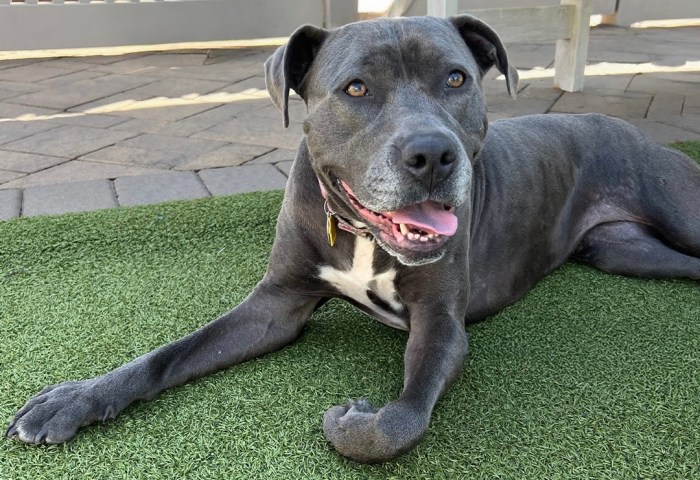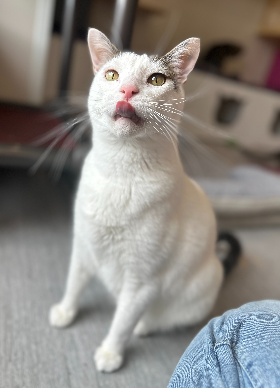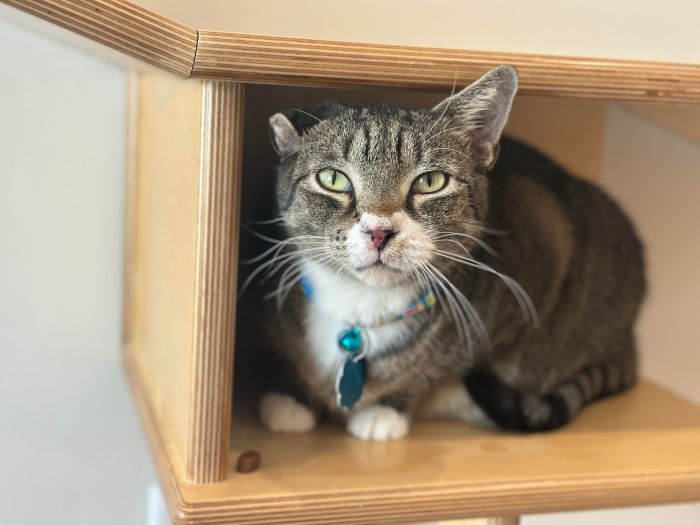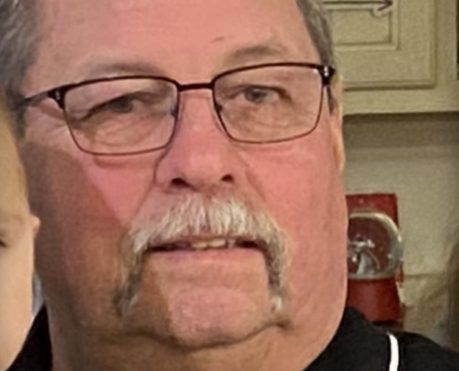Paws of War, a local nonprofit, celebrated the opening of its new Veteran Support Command Center. The facility, billed as the first of its kind in the state, will provide veterans, first responders, and their companion and service animals with support and resources to address PTSD, mental health crises, addiction and homelessness.
This new Command Center in Nesconset — a 2,000-square-foot facility with six offices, worksstations, therapy areas and meeting rooms — will create a welcoming space for veterans to connect with one another and share their experiences while coping with PTSD and other mental health challenges, according to the organization.
“I think the reason everyone really wants to show their support is because there is such a need for this space that we now unveiled,” said Robert Misseri, co-founder of the Paws of War, which had a crowd of about 200 on hand for a ribbon-cutting ceremony celebrating the center’s debut.
The organization assists veterans in finding housing where they can live with their dogs and “will also foster dogs when veterans are receiving care and support,” the group said in a news release. If a veteran can no longer care for their dog, or if they pass away, Paws for War will adopt the dogs to ensure they’re well taken care of.
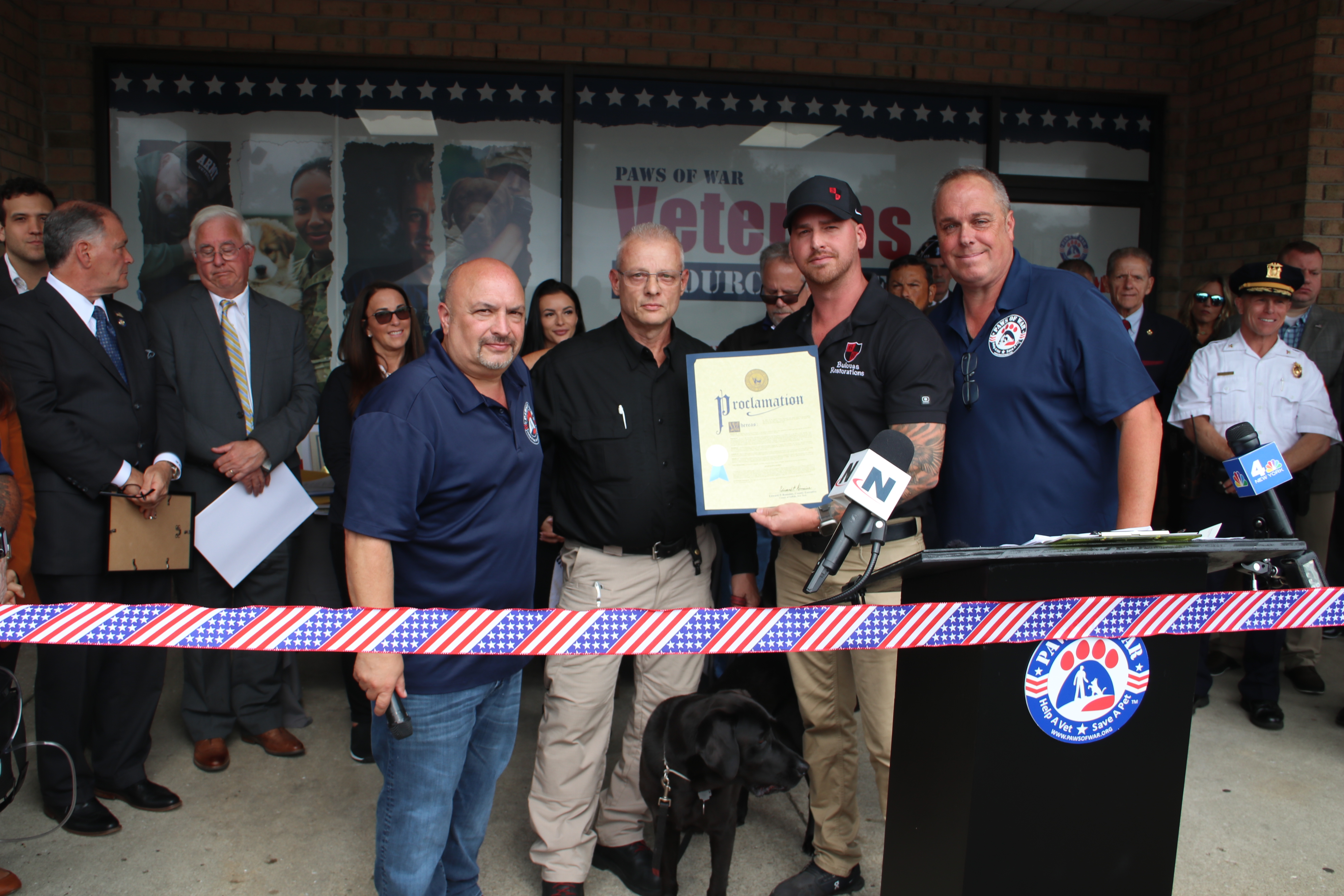
There are an increasing number of veterans requesting assistance, Misseri said, though he is not quite sure the reason as to why just yet. Many veterans aren’t directly asking for help themselves. Instead, the organizations like Paws of War learn about their situations through hospitals, mental health professionals, or concerned citizens.
“Every story is different. It’s unique, but they’re all the same in the sense that it’s a veteran and they’re in trouble, they’re in a crisis, and they have a pet,” he said. “That pet is the reason that they’re forcing themselves to live a little differently because they won’t give that pet up — they won’t separate.”
If a veteran was homeless and did not have a pet, Misseri said they could just go into a shelter. But the difference at Paws of War is that they won’t separate the veteran from their animal.
“The emotions that we could see on many of the faces of those who kind of get it, those who know all about it, those who are hearing stories for the first time from some of the veterans in the crowd,” he said, acknowledging the importance of these resources.
Misseri told the crowd on Tuesday that several veterans attending the ceremony didn’t have a home to return to that night. While the organization is working to secure assistance or temporary housing for them, he emphasized the bond between the veterans and their animals is so strong.
“Being a military member, you don’t abandon your buddy,” he said. “They will live in a vehicle. They will live in the woods. They will do whatever they can not to separate from their dog. When those cases start to come in — everyone is unique, everyone has a different circumstance and sometimes it’s finding them the right solution.”
